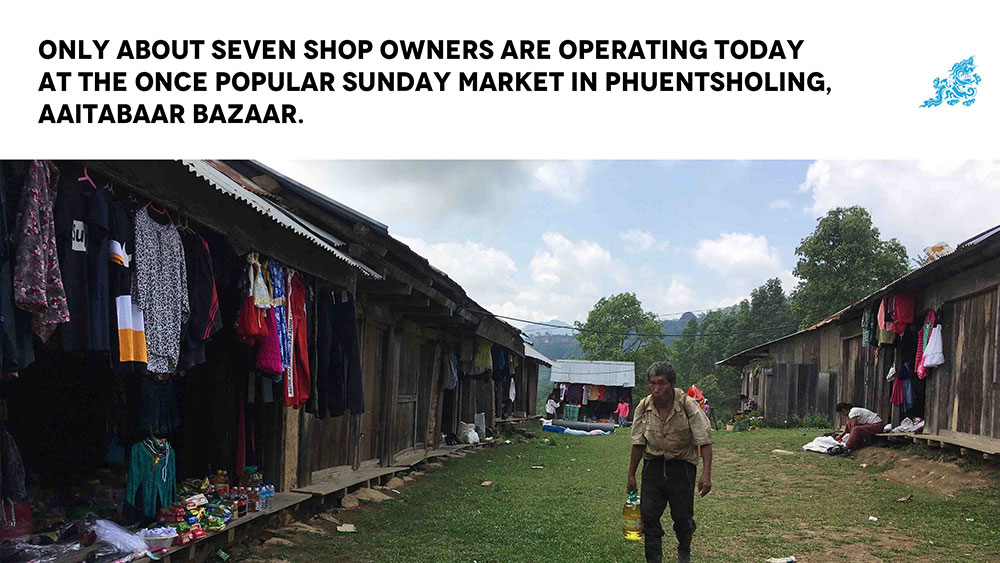Not long ago, Phuentenchu residents gathered every Sunday at the Aaitabaar Bazaar (Sunday market) located about 2km above the gewog centre.
As a thriving market, villagers from four gewogs of Tsirangtoed, Sergithang, Semjong and Phuentenchu gathered to sell their farm produce and buy essentials, including meat and locally brewed alcohol.
However, as motorable roads connected the places, villagers found a new market to sell and buy products, deserting the market. The Covid-19 pandemic worsened the situation, forcing many shops to close.
Only about seven shop owners are operating business today although the market has 16 thram holders.
Those still operating the business said their income has been reduced by more than half with the market losing its fame by the day.
One of the oldest shopkeepers and also the secretary of the market, Bala Ram Adhikari, 70, from Tashichholing village said he operated a garment shop for more than 40 years.
He said that the market catered to the local residents as early as 1945. “There were only three commercial hubs in Tsirang then and Phuentenchu was one of them.” Changchey and Mendrelgang satellite town are the other two.
Village elders said Damphu town became popular much later.
Bala Ram Adhikari said hundreds of people flooded the market every week and they earned three times more than what they earned today. “With villages connected with motorable roads, there are shops thriving in every corner. Moreover, residents can travel to Damphu to buy necessities now.”
A villager, Sanja, 60, comes to the market every week to sell some vegetables that she grows.
She said that she was about nine years old when she first visited the market, accompanying her mother from Semjong.
“Many vendors operated business from temporary stalls then. The empty space between the structures was all occupied by people and miscellaneous goods,” she said.
Things have changed now, she said. “We’re finding it difficult to sell anything here. The visitors have also reduced because of the current pandemic.”
Deuki Upreti who has been running business for the past five years said that it was difficult to earn even Nu 500 a week.
To attract more visitors and revive the market, Bala Ram Adhikari said that a proper road network and site development is needed. “Development has been slow for the market and we are yet to see some changes.”
A businesswoman, Dhan Maya Bhandari, said if the town was developed and basic amenities constructed, it would help residents save travel cost and time as they would no longer have to go to Damphu.
“A taxi charges at least Nu 400 for a person to go to Damphu and come back. “We would also keep varieties of goods if there are more visitors,” she said.
Tshering Dorji from Tsirangtoed, who is a regular visitor, said that things have deteriorated over the years.
“When I first resettled here in 2000, this market was popular with varieties of goods available,” he said. “The number of shops also reduced between 2000 and 2015.”
He said the development of the town would benefit residents of three nearby gewogs.
Meanwhile, Phuentenchu Gup Shiva Lal Kararia said that there is a plan to develop a satellite town at the site. “However, township development activities couldn’t be implemented immediately because of the Tsirang tourism programme.”
He said that they are also planning to consult the Tourism Council of Bhutan on designs for village homestays and other facilities to promote tourism in the gewog. “Currently, a feasibility study is being conducted.”
By Chimi Dema | Tsirang
Edited by Tashi Dema


